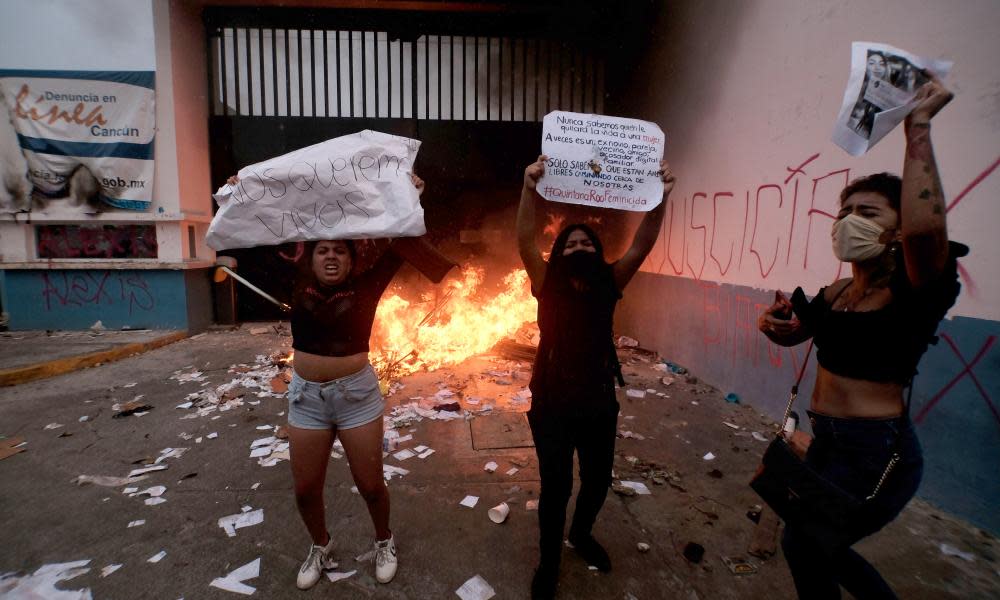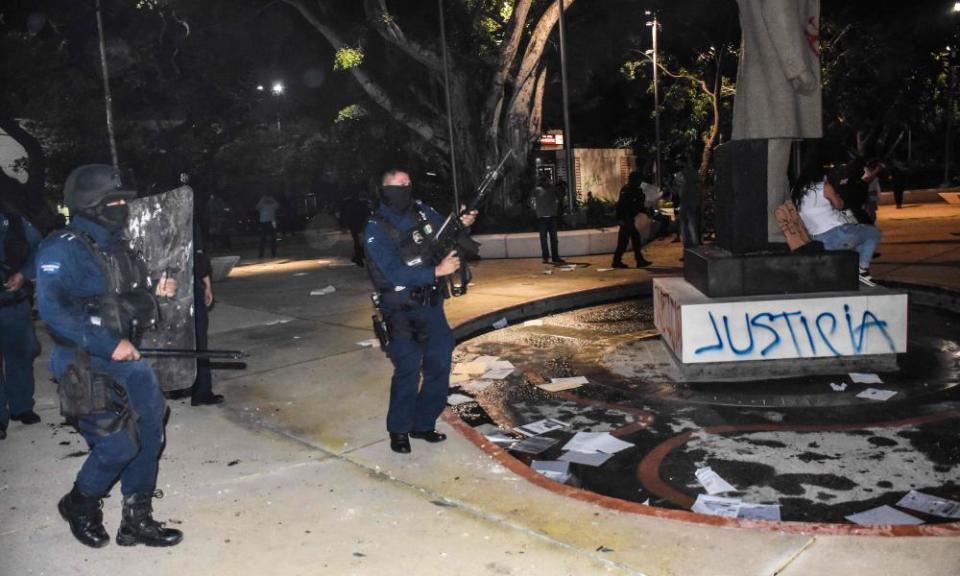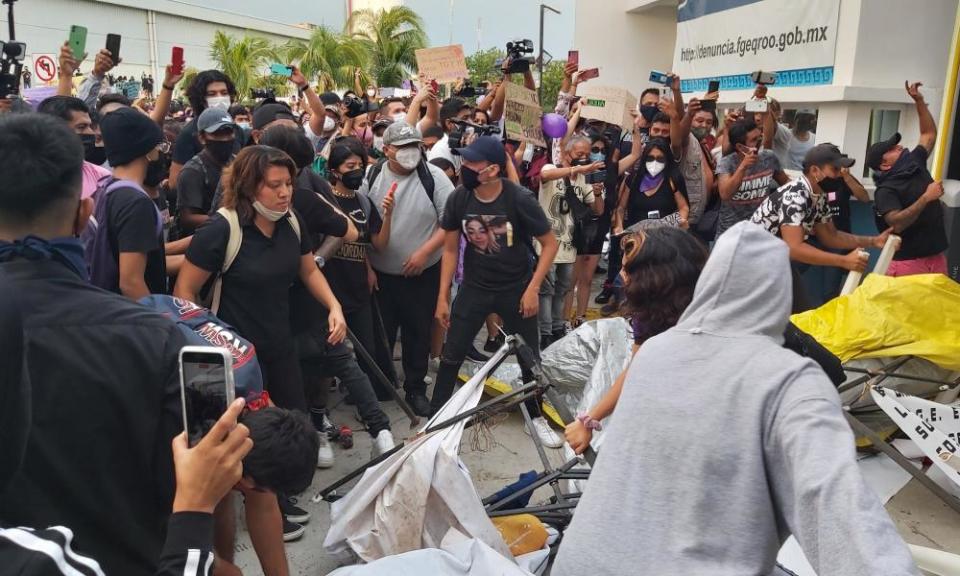Mexico police open fire on femicide protest in Cancún

Human rights activists in Mexico have expressed indignation after police opened fire on protesters who tried to force their way into Cancún city hall during a demonstration against the country’s femicide crisis.
Four journalists were injured in the incident late on Monday, including two who suffered bullet wounds. Eight protesters were reportedly detained after the shooting.
Related: Mexico: activists voice anger at Amlo's failure to tackle 'femicide emergency'
The demonstration was called after the dismembered body of 20-year-old Bianca “Alexis” Lorenzana, was found, days after she disappeared. It was the latest in a string of grisly crimes against women and girls in the Caribbean state of Quintana Roo.
Approximately 10 women are murdered in Mexico each day, prompting protests by an increasingly outspoken feminist movement over successive governments’ apparent inability to stem the violence.
Activists’ frustration has focused on the country’s current leftist president, Andrés Manuel López Obrador, who has downplayed gender issues and accused feminist critics of allying with his conservative political opponents.
Lorenzana’s mother had originally asked for a peaceful march to demand justice for her daughter. But partway through the demonstration she changed her mind, reportedly telling protesters: “Burn it all, because Alexis would have done that for you.”

Some on the march followed her call, breaking windows and spraying graffiti on the local prosecutor’s office, then the city hall.
As the crowd neared the building, police officers approached and opened fire, causing demostrators to disperse amid chaotic scenes.
The newspaper Por Esto posted a photo of a police officer waving a pistol in the air. National guard agents appeared to have taken up positions around city hall after the shooting.
According to the state governor, Carlos Joaquín, responsibility lay with the local police chief, who ordered officers to open fire to disperse the crowd.
“I completely reject any intimidation or attack against protesters,” Joaquín said in a tweet. “I gave orders that there be no attacks and no guns at the marches scheduled for today. I will investigate the irresponsible person who gave orders that contradicted that.”
Monday’s violence was also the latest incident in which feminist protests have been met with police violence.
In mid-September, police in the municipality of Atizapán in Mexico state attacked and beat a group of protesters. Mexico City police teargassed and beat protesters marching for International Safe Abortion Day.
And the day before the Cancún protest, police in the Mexico state municipality of Cuautitlán teargassed a group of about 40 people protesting against the femicide of a 17-year-old named Amber Viridiana Uicab.
No local authorities have taken responsibility for the police shooting. “Everyone says it wasn’t them,” said a Cancún journalist, Alejandro Castro, who covered the protest.

The violence also reflected a pattern of violence against the press. Mexico is one of the most dangerous countries in the world for journalists. Three Mexican journalists have been murdered in the last month, among them Arturo Alba in Ciudad Juárez, Jesús Alfonso Piñuelas in Sonora and Israel Vazquez Rangel in Guanajuato.
Isa, a young woman who participated in the march, said she had never seen such a violent response to a protest in Cancún. “They brought out a lot more police officers [this time] to try to scare us, but we aren’t scared.” she said. “Our fear is rage now.”
The Cancún protest also reflected Mexican feminists’ growing use of “direct action”: as violence rates against women have soared, protesters across the country have increasingly resorted to breaking windows, starting fires and daubing graffiti across public buildings.
Isa, however, noted that Lorenzana had many friends in Cancún, and said that the aggression reflected the rage stirred up by her killing.
“Some [of us] approached to ask them [who they were], and the majority answered that they were Alexis’s friends,” says Isa. “I think they were a lot of people who were really hurt and angry.”

